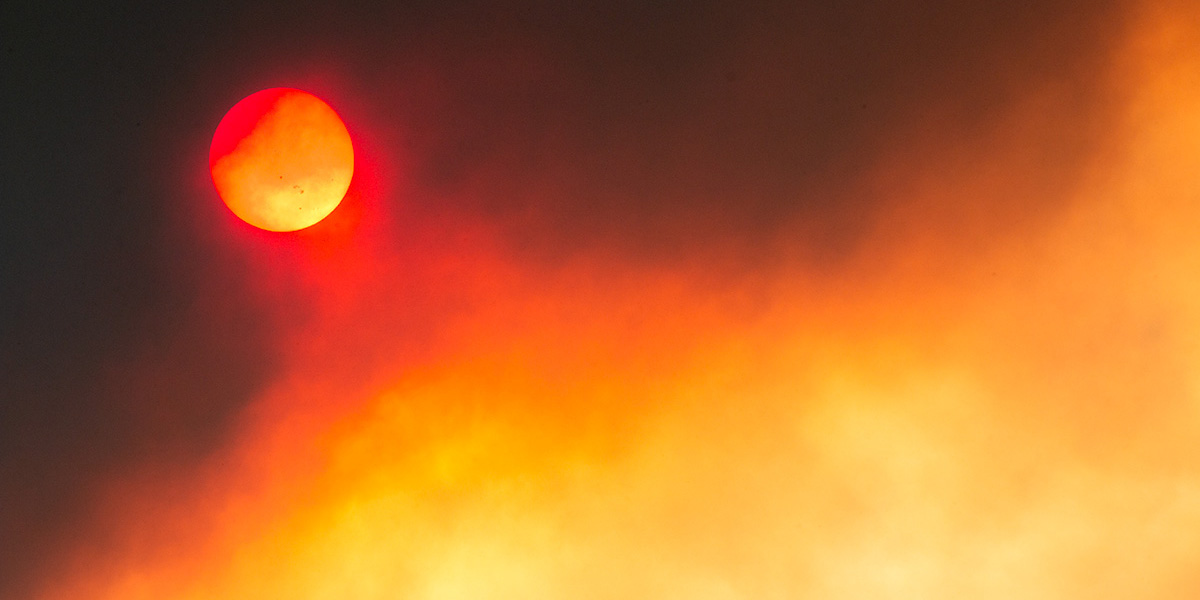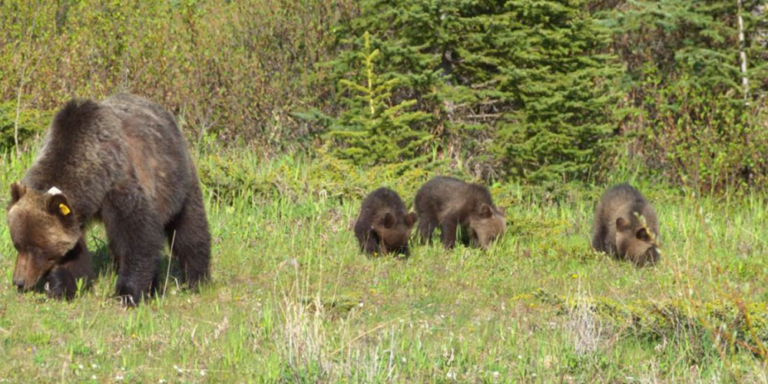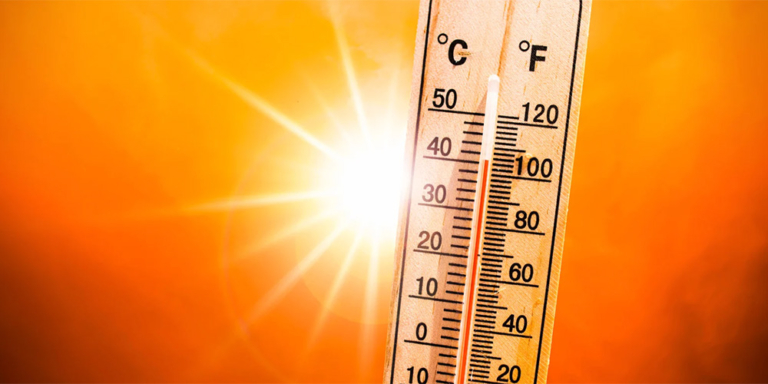This summer, wildfire smoke, flooding, and soaring temperatures painted a harrowing picture across Canada and the globe. The escalating threat of climate change is no longer some far-off concept that will only affect our kids or our kids’ kids.
From coast to coast, thick clouds of wildfire smoke blanketed the skies from May through July.
By mid-2023, over 13 million hectares were scorched, making it the worst wildfire season in North American history. In Canada, wildfires affected all 13 provinces and territories.
Danny Blair, co-director of the Prairie Climate Centre at the University of Winnipeg, remarked to CBC News recently, “It’s been a wild ride.”
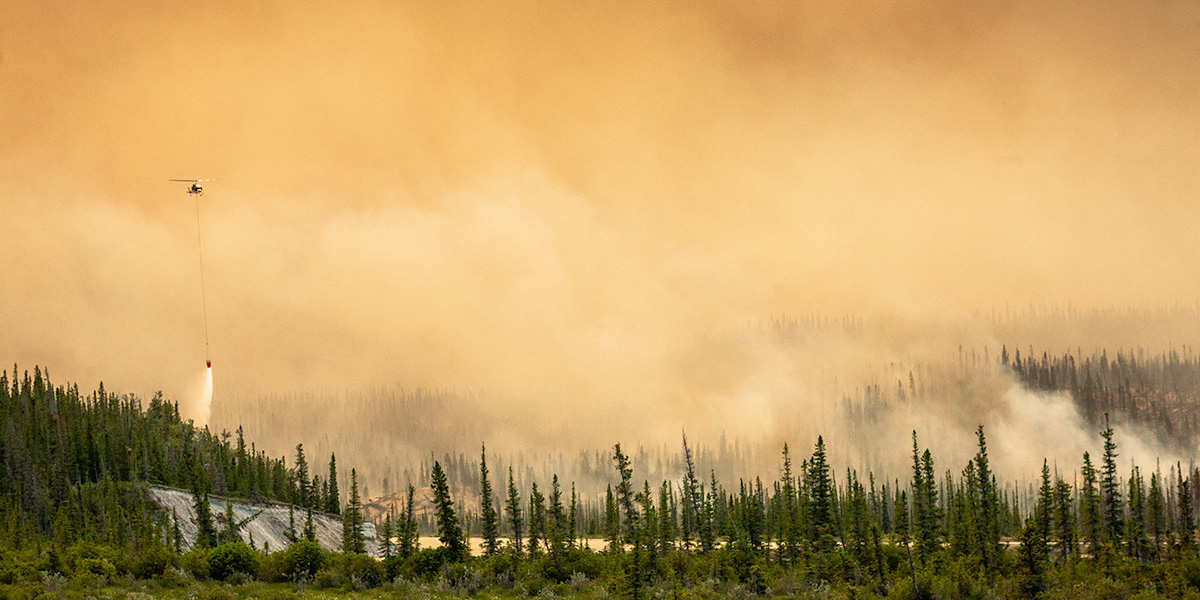

The data speaks for itself.
Environment Canada senior climatologist Dave Phillips tallied up the number of hot and cold records across Canada and told CBC News, “If the climate was balanced, you’d have as many cold records as warm records,”
But Canada saw 372 new hot-temperature marks this summer, compared to just 55 cold ones.
According to Environment Canada, the Pacific Coast’s temperature rose between 2°C and 4°C while the Atlantic and Arctic coasts experienced an increase of 5°C from the average.
When Halifax was inundated with three months’ worth of rain in a single day, roads were destroyed, power was cut, and people lost their lives.
And it wasn’t just Canada.
According to the European climate monitoring organization, Copernicus, July 2023 was Earth’s hottest month ever recorded, breaking the previous 2019 record by an alarming margin!
Samantha Burgess, deputy director of Copernicus, stressed the dire consequences of such records, highlighting the frequent and extreme events our planet now faces.
The global average temperature in July was 1.5 degrees Celsius (2.7 degrees Fahrenheit) warmer than pre-industrial times, reaching a threshold the nations vowed not to cross in the 2015 global climate agreement.
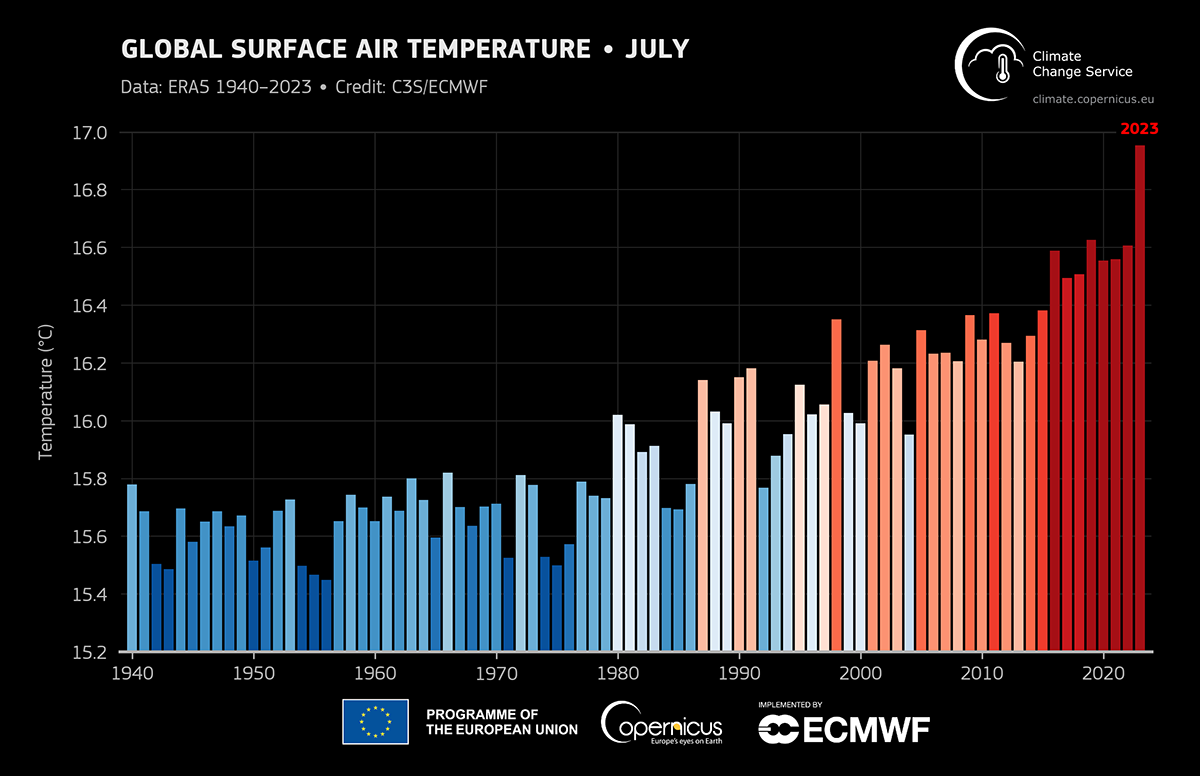

“It’s a stunning record and makes it quite likely the warmest month on Earth in 10,000 years,” Stefan Rahmstorf, a climate scientist at the Potsdam Institute for Climate Research in Germa, told CTV News.
Climate scientist Friederike Otto from Imperial College of London pointed out the broader implications to CTV News: “We are living in a very different world, one that our societies are not adapted to live in very well.”
But hope is not lost. Recognizing these changes is the first step toward meaningful action.
Danny Blair stated that the unsettling shifts in our environment aren’t just random extreme weather patterns: “This is screaming climate change. It’s the very thing we’ve been talking about for years.”
Canada and the rest of the world need to brace for more such anomalies and take action to slow heat-trapping carbon emissions significantly.
As Dave Phillips, a senior climatologist with Environment Canada, succinctly put it: “What you see is what you’re going to continue to get.”

